Ecological Restoration
Viridis Terra revitalizes degraded industrial sites to align with the
What we do
Viridis Terra offers a unique & scalable model for restoring degraded forest and agroforestry landscapes. We design land restoration management models with detailed technical and financial information based on existing opportunities for the commercialization of various nature positive commodities. We generate significant and tangible benefits for local communities while providing carbon removal outputs and return on investment for the investors.
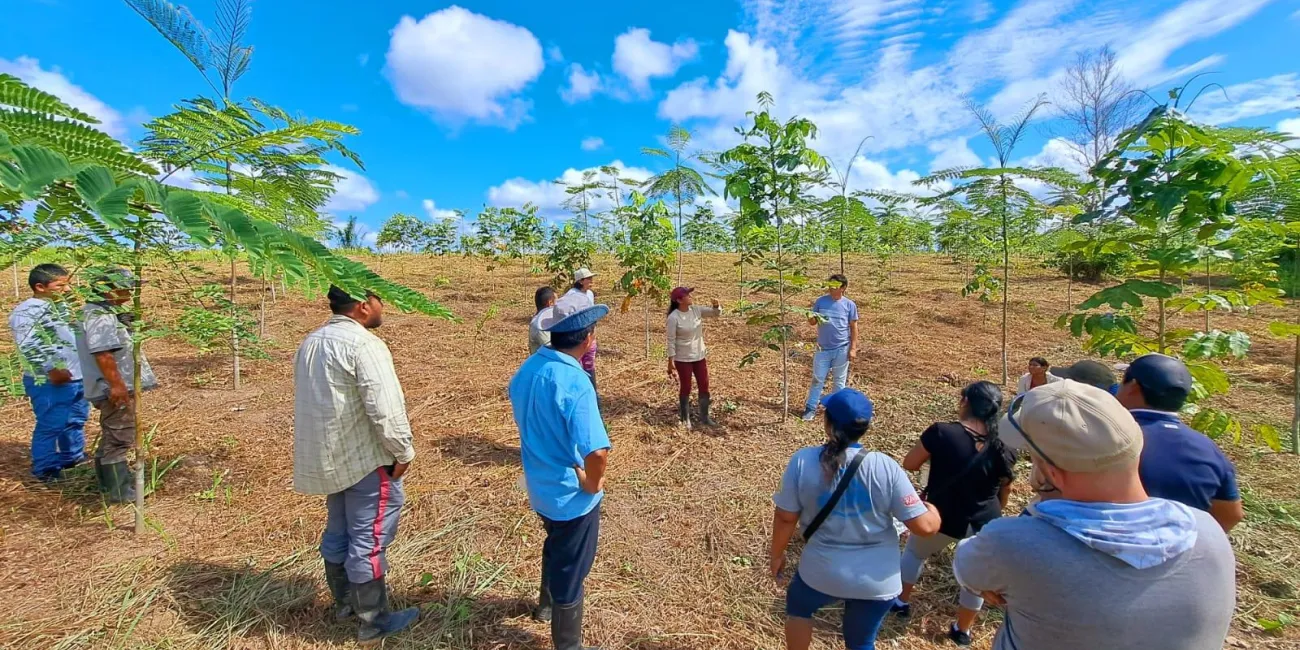
With two billion hectares of degraded land, contributing 25% of Global GHG Emissions, urgent action is critical. Our planet loses approximately 50,000 square meters yearly (area equivalent to England).
We are committed to reversing this trend, restoring our Earth for a thriving future. We provide tailored nature-based solutions, offering large organizations a scalable and cost-effective path towards achieving comprehensive carbon neutrality and helping the fight against climate change.
We bring to projects unique advantages as land supply to meet capital deployment velocity, biotechnologies to maximize carbon removal outputs and agroforestry economics and technology to ensure operation scalability and traceability. Our restoration activities reduce social inequalities by creating high-paying jobs.


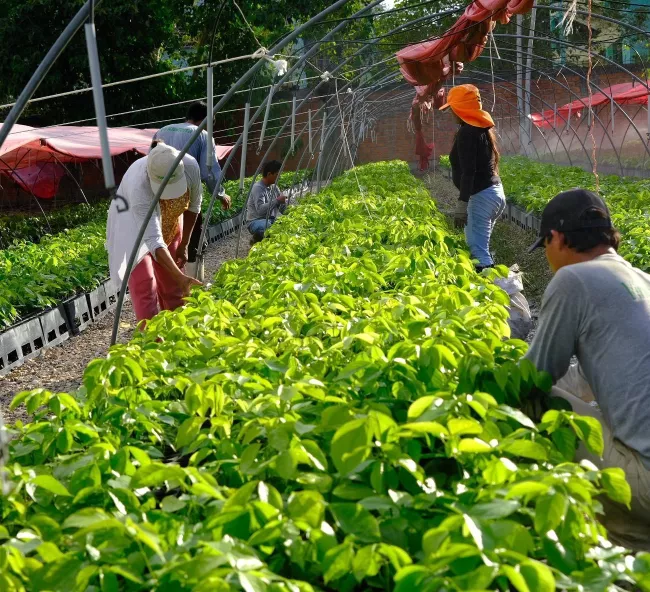
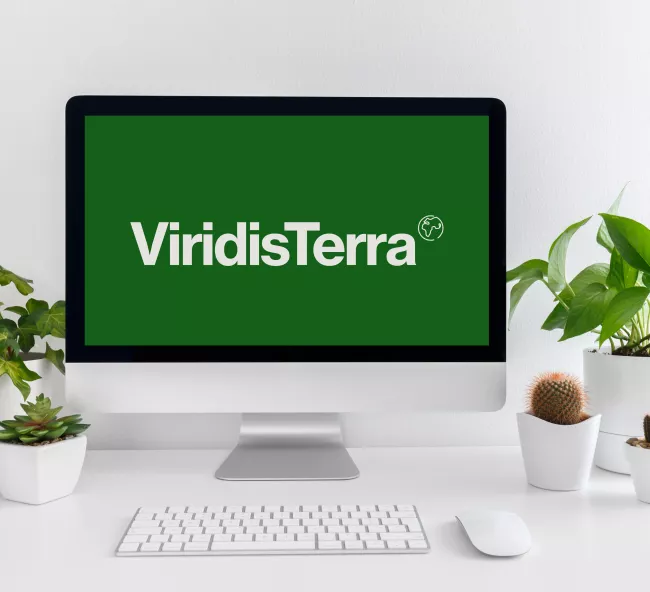
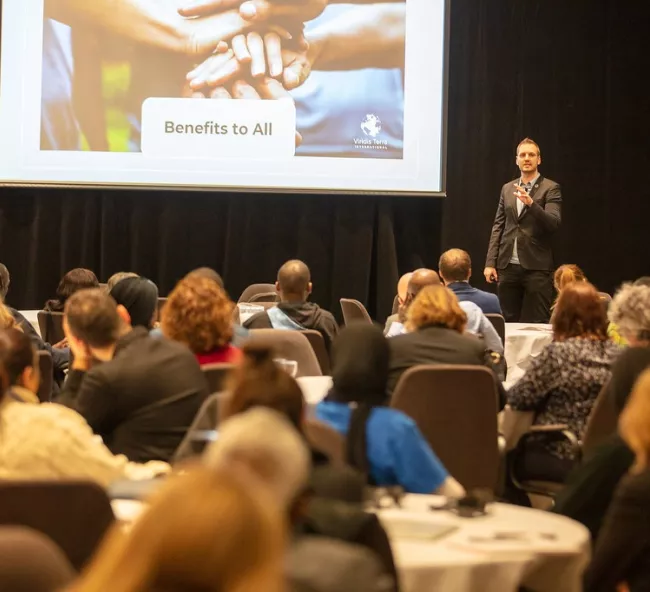

Nature-based solutions increasing by 2X land productivity. Our biotechnologies increase the survival and productivity of trees on degraded lands compared to the industry average, significantly increasing the success rate of our forest landscape restoration activities.

We empower landholders and communities in managing their lands sustainably. By providing incentives upfront, we ensure successful implementation of new forests and agroforests until they become profitable. Once productive, they will earn revenues, while benefiting from ongoing technical support, tailored training, and capacity building. Our restoration systems are designed with the support of professionals in the field and take into account the skills, desires and knowledge of the landowners in each region.

Our Information Technology Team created its own centralized platform allowing corporations to track & monitor field operations progress, new developments, contract signing, carbon capture data, selection of land management models by landholders, SDGs & more.

We are currently implementing our business model in Peru. To accelerate the opening of new markets, our license sales model targets local partners already able to do field restoration work but will benefit from our biotechnologies, our technologies, and our business model. Our license package gives access to capital, technologies, and technical assistance to execute the fieldwork activities at a large scale.
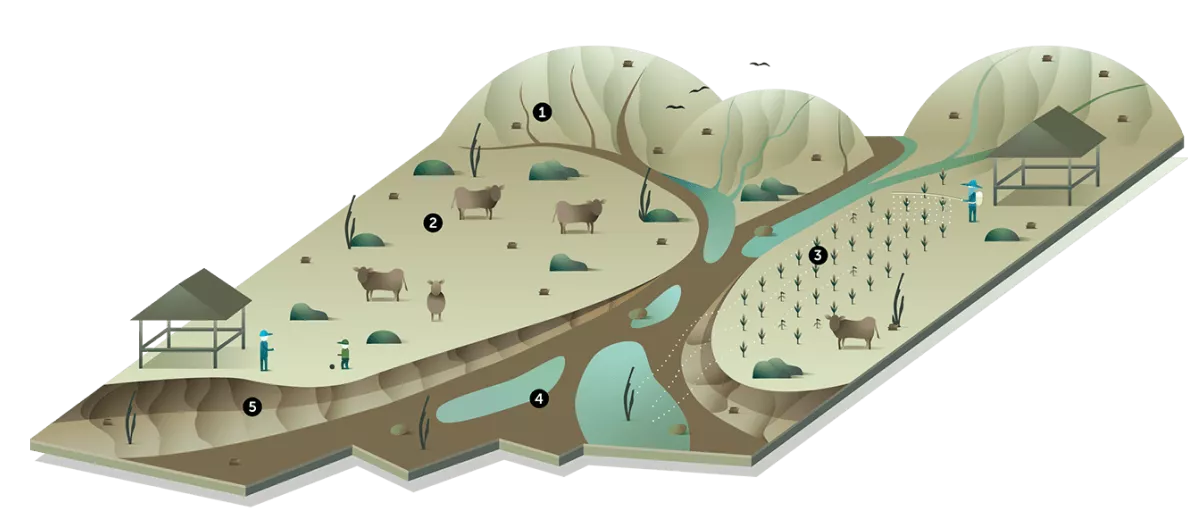
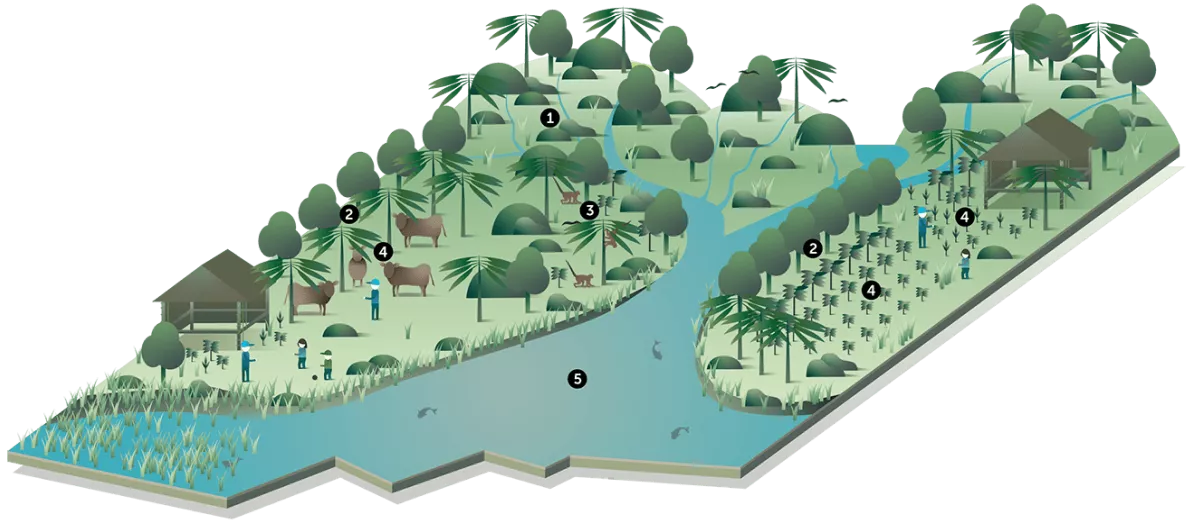
We bring into the projects field-based proven biotechnologies to restore natural forests, a hi-tech tree factory to produce high-quality seedlings, and a biotech lab to produce biofertilizers, thereby, allowing to increase land productivity by 2X. Learn more below.
Sylven®
Special low-input patent-pending seeding formulations for woody plants, pretreatment of surfaces, and method of application are used to grow forests from seeds on degraded lands. This biotechnology increases by 2-3 times seed germination rate and tree/shrub establishment on degraded lands.
Microlignum®
Special low-input formulations applied to micro-cutting, pretreatment of surfaces, and method of application proprietary to VTI used to grow forests and agroforests from woody living biomass on degraded lands. This technology allows establishing 3-10 times more trees/shrubs on degraded lands while using the same length of living woody biomass as the traditional 50cm+ cutting.
Sustrato®
Special low-input out planting substrate proprietary to VTI for establishing tree seedlings grown in greenhouses on degraded lands. 75-100% survival rate of seedlings produced in the nursery and outplanted on highly degraded lands compared to often less than 40 % without it.
TreeBoost® products
TreeBoost® products are made of microbial inoculants composed of mycorrhizal fungi, bacteria, and endophytes in symbiosis with roots to boost the growth and health of trees and other plants growing on degraded lands.
Impacts in greenhouse & nursery: 20-50% to up 100% increase in tree growth during production. Impacts on degraded lands in tropical ecosystems: Up to 130% increase in tree growth on degraded lands. Up to 70% increase in tree survival on degraded lands.
Phenomic tools, Genomic tools, Genetic marker-assisted selection, Micropropagation
Allows the production of a large number of seedlings by micropropagation using only a few embryos or juvenile tissues.
Ensures optimal genetic diversity in the new ecosystem.
Allows the selection of the more performant and productive tree varieties.
Up to 50% increase in cash flow from commercial tree.